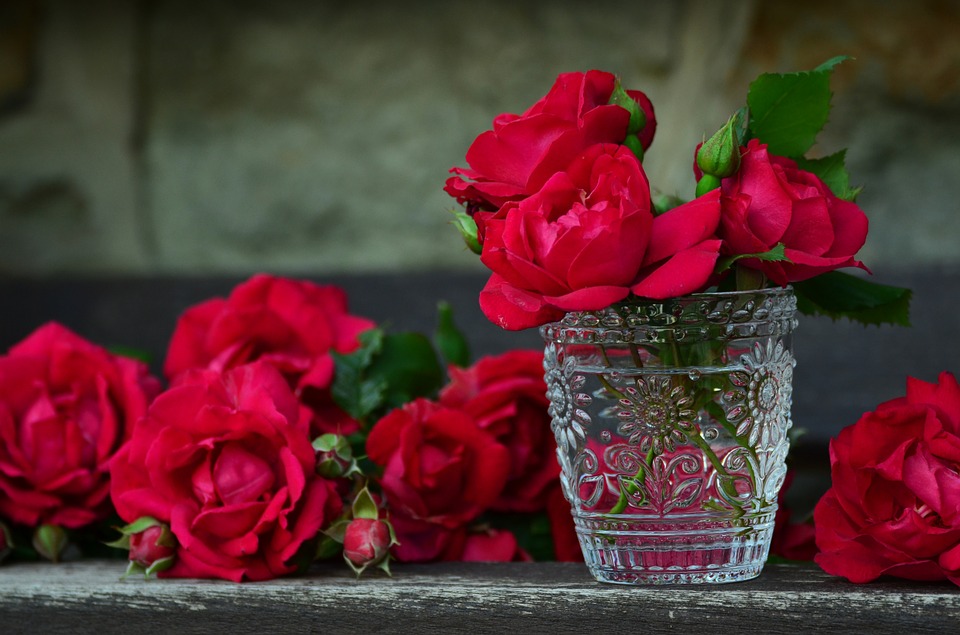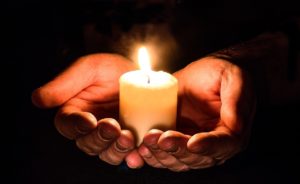
It’s easy to feel dragged down in your journey of substance abuse recovery. If you’re just starting to get help for your addiction to drugs and alcohol it may feel like you’re looking down the road at a destination that you will never meet. If you are just getting started at our addiction recovery center in Florida, drug detox and rehab may not only feel scary, but could look impossible to withstand and endless to get through, from your viewpoint. If you weren’t already overwhelmed enough, as soon as someone tells you the truth about addiction, that it is a daily choice you make, that you have to continue your recovery even when you’re done with your drug detox in South Florida and your FHE Health rehab program, you may feel like you want to give up. The challenge is to see the journey through detox and recovery, and the most vital thing. Don’t look toward sobriety and wish you didn’t have to go through the treatment to get there, because sobriety doesn’t work if you don’t go process the suffering and grief that got you there in the first place.
The Journey Is Beautiful, and Beauty Will Save The World

Fyodor Dostoevsky was a Russian writer in the 1800’s. His novels didn’t award him much acclaim in his lifetime but they are now some of the most important fiction regarded by the psychology and literary worlds. Thematically, Dostoevsky wrote about the darkest nights of the soul, but also about the illumination of those dark parts. His were books of paradox, seclusion, and prophetic tragedy. The shadows in the novels are highlighted by a kind of saving light, a gift to the reader, usually in the form of something close to absolute good in one of his characters. But the story doesn’t rest there. His characters end up on a journey, almost in spite of the writer, that untangles the innocent good of his protagonist and reveals that the true beauty in the world is that of raw humanity, and an openness to the mysteries of life.
In his novel, The Idiot (1869) Dostoevsky’s protagonist, Prince Myskin, looks at the world through a lens of compassion and innocence. He Is captivated by beauty. But not beauty as we usually define it. The beauty Myskin sees and cares about is amplified by it’s undergirding of suffering.
A conversation between Myskin and another character in the novel reveals the complicated relationship between beauty and human struggle:
“So, you appreciate that kind of beauty?’ [Madame Yepanchi] asks the prince.
‘Yes. That kind—’ the prince replies with an effort.
‘Why?’ she asks.
‘In [her] face—there is much suffering,’ he says, as though involuntarily, as though he is talking to himself.
‘Beauty like that is strength,’ one of the other women in the room angrily declares. ‘One could turn the world upside down with beauty like that.’
‘Beauty will save the world.’” the prince replied.
This quote, “beauty will save the world” is often misrepresented. When taken out of context it is easy to define beauty as our society would, as a largely aesthetic construct. It is the want of humans in modern society, and that includes when Dostoevsky is writing, to behold beauty as gentle and innocent, smooth lines and soft textures, perhaps more like the prince here than the woman the two characters are talking about. But in this book, like several of his others, Dostoevsky represents the idea of beauty as something that comes as a result of struggle and suffering. To Dostoevsky, beauty is a kind of living paradox. It is the individual honestly shaped by the treacherous journey they have taken or are on and the complications and shapes that journey imprints on the sufferer. The journey is what matters, and it is the reflection of the light off the darkness that reveals true beauty.
The Darkness of Addiction and The Beauty in You

As Dostoevsky teaches us that beauty is in the middle place between two points, perhaps you can see the obvious correlation to your journey through substance abuse recovery. It can be hard to believe that any aspect of your chemical dependency to drugs or alcohol could be beautiful. But Dostoevsky believes that the refining that happens through suffering gives us a deeper appreciation for the intricacies of a simple life. Someone who has suffered tragically is more likely to stop and smell the flowers, quite literally, because they have been on the other side of suffering where to them, nothing feels hopeful or smells sweet.
This journey through substance abuse and addiction recovery has possibly been some of the darkest of your life, but also some of the most profound. For clarity it is important to state that there is nothing glamorous about addiction. It is wrought with suffering and heartache and the recovery is brutal. But there is indeed beauty in the journey to recovery. There’s beauty there because it is where you will find the most real version of yourself as well as the most real version of everything else, the roses, around you.
Through FHE Health detox and rehab programs you discover the shape of you. You learn about the kind of strength and fortitude within you that has helped you make it to this point and will continue to support you as you move forward. You begin to appreciate life as fragile, but also as vibrant. It’s a paradox, through the depth of darkness the light is revealed. Maybe your suffering is born out of more than your addiction. Maybe you suffered years of abuse or neglect at the hands of someone who was supposed to take care of you and love you. Those dark moments shape you too. It is as if Dostoevsky would like us to realize that it’s what we do with the pain that matters. It’s that we take the journey at all.
Seeing the Extraordinary In the Simplicity of Everyday Life Can Be Energizing

As you become cognizant of the fragility and brilliance of life through the darkness of substance abuse and chemical dependency you may find that seeing the radiance in the smallest parts of life can actually be energizing and it can certainly help you succeed as you continue in sober living.
One of the most difficult aspects of addiction recovery to overcome is a sense of hopelessness. This feeling can come from a number of aspects of the journey. It can be difficult to accept the constant need for vigilance as a drug or alcohol addict. The fact that you will never be able to safely consume your substance of choice can make an addict feel untethered and scared. After all you were likely taking the illicit substance or abusing prescription medication because you had a kind of pain that needed soothing or numbing, whether physical or emotional. You were self medicating. And now, knowing that it will or has been removed from you through detox and rehabilitation, can make you worry that the overwhelming shame or guilt, the deep pain may come back.
This is why there are several steps in your recovery. FHE Health offers a myriad of programs to its patients so that they can find the right path for their needs. Through detox you lose your crutch and through rehab and therapy you learn that you didn’t need it to begin with. You learn that you’ve had the strength and courage in you all along. And you will likely also find that through that pain and discovery of self you have a kind of hope in the little things. When smelling a rose, laying in a grassy lawn on the first day of spring, letting a swift wind hold you in a moment can fill your whole person, physical and mental, with a kind of energy akin to love, you’ll know what Dostoevsky means when he equaits true beauty with the journey of someone who has gone through great tragedy.
Dostoevsky’s Addiction and Tragedy
 Dostoevsky was no stranger to addiction, though his was not a substance abuse. He was afflicted with a life long and very damaging compulsive gambling addiction. Dostoevsky’s father was obsessed with opulence, status and power and this very probably played a substantial role in Dostoevsky’s life of addiction and his lack of great success in his early life. Like with many addicts of drugs or alcohol so it was that Dostoevsky’s compulsive gambling addiction was buoyed by his anxiety disorder.
Dostoevsky was no stranger to addiction, though his was not a substance abuse. He was afflicted with a life long and very damaging compulsive gambling addiction. Dostoevsky’s father was obsessed with opulence, status and power and this very probably played a substantial role in Dostoevsky’s life of addiction and his lack of great success in his early life. Like with many addicts of drugs or alcohol so it was that Dostoevsky’s compulsive gambling addiction was buoyed by his anxiety disorder.
Dostoevsky’s tragic flaw when it came to compulsive gambling was a classic symptom of the addiction – he couldn’t stop gambling because he couldn’t stop chasing his losses. He firmly believed in his ability to win the game. Dostoevsky had remarkably good luck when he started playing the tables and therefore believed that his luck was about to break. The man would watch a table and convince himself he was calling every win. Eventually he would play and minutes later, often, would find himself without anything. Like many gambling addicts, Dostoevsky pawned anything he could get his hands on so he could return to the roulette table for his perceived big win. Everything from his book advance to his different wives’ wealth was on scarring relationships to support his compulsive gambling habit. By Dostoevsky’s own pen we learn in a letter to one of his wives that his addiction sometimes felt like it cost him his sanity, “By half past nine I had lost everything and I fled like a madman.” he tells her.
Dostoevsky lived a chaotic existence of little success until late in life, great tragedy, and critical thought. The lack of success and an almost chronic adversity, shaped so much of his life and the works he produced but it was the critical thought that was the strength that pulled him through what most of us would consider an impossible life.
Dostoevsky lived through his mother’s death when he was fifteen, his father’s murder a few years later. He lost his first wife and then three months after that his brother. He himself was sentenced to death only for the execution to be stayed and then instead he was sent to a Siberian work camp for close to a decade due to his participation with a revolutionary group who disagreed with the current state of affairs in Russia. Because of his gambling addiction Dostoevsky spent much of his time short on funds, food, and friends. When he sold his complete collection to make enough money to eat he was cornered by his addiction. He no longer had control over his writing, and the buyer had, as a part of the sale, demanded another novel within a year.
Like any addict, Dostoevsky squirmed under the pressure, but did eventually write the book. One of his most popular novels, Crime and Punishment was a direct result of Dostoevsky’s struggle with addiction, and his efforts to process the darkness in his own life. When you read the book you can sense the loss of identity, the fear and the same tenuous grip on sanity that Dostoevsky’s addiction afforded him. Just imagine what could have been if he had had access to a gambling addiction treatment center and therapists to walk him through his grief, fear, and the symptoms of his disease.
Your Journey is Nothing Short of Heroic Beauty

Just like Dostoevsky you have a path to creation through drug and alcohol addiction treatment, but yours is more efficient because of the recovery and therapy programs you will be able to engage with at FHE Health. Dostoevsky’s tragedies led him through a depth of processing on the page that ended up rippling throughout the world and it’s still moving. Your journey to sobriety and continued recovery will reveal who you are. The journey will help you refine your life in a way many people never do. You’ll see the fragility of each moment through your strength and honesty. You’ll begin to more closely observe and appreciate each small beauty, and in your journey you will find yourself and the kind of hope you could never get from an addictive substance. It is that journey from tragedy to hope, unengaged to attuned, hopelessness to finding the courage and hope inside of yourself, that incompasses the kind of beauty that can indeed save the world.
If you are suffering from an addiction and are ready to start your own beautiful journey call us now at (833) 596-3502.






